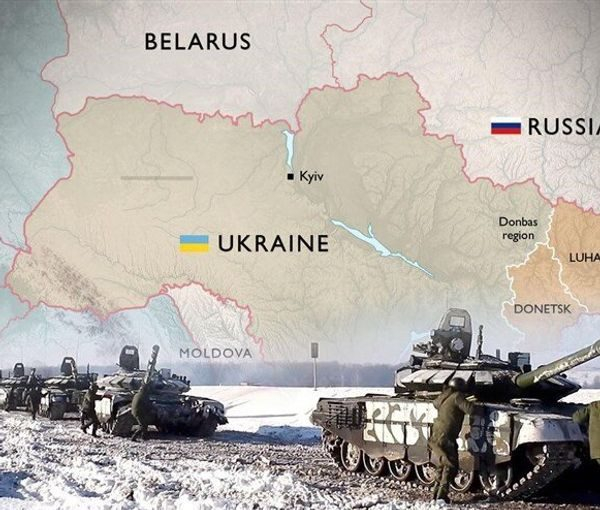Understanding the Conflict: A Brief Overview of the Russia-Ukraine War.
The ongoing conflict between Russia and Ukraine has been a subject of international concern and has attracted significant attention since it began in 2014. The conflict, which is primarily centered in eastern Ukraine, has resulted in thousands of casualties, significant displacement of civilians, and has had far-reaching geopolitical implications. Here’s a brief overview of the key aspects of the Russia-Ukraine war.
Origins of the Conflict:
The roots of the Russia-Ukraine conflict can be traced back to Ukraine’s decision in 2014 to pursue closer ties with the European Union, which was met with resistance from Russia. This led to widespread protests and eventually escalated into a violent conflict in eastern Ukraine, involving pro-Russian separatist groups who sought to establish independent regions known as the Donetsk People’s Republic (DPR) and Luhansk People’s Republic (LPR). Russia has been accused of providing military support to the separatists, although it has denied direct involvement.
Military Actions and Tactics:
The conflict has involved both conventional and unconventional warfare tactics. The Ukrainian military has engaged in defensive operations to protect key positions and resist the separatist advances, while the separatists, allegedly supported by Russian forces, have launched offensives to gain territory. The conflict has seen the use of artillery, tanks, drones, and other modern weapons, as well as asymmetric tactics such as guerrilla warfare and cyber attacks.
The Russia-Ukraine war has had broader geopolitical implications, with Russia and Ukraine’s relations significantly strained, and the conflict affecting regional stability in Eastern Europe.
The conflict has also strained relations between Russia and Western countries, resulting in economic sanctions, diplomatic tensions, and increased military presence in the region. Efforts to find a peaceful resolution to the conflict, including diplomatic negotiations and ceasefire agreements, have faced challenges, and the situation remains volatile.
Here are some potential lessons African militaries could learn from the Russia-Ukraine war:
Hybrid warfare: The Russia-Ukraine war has highlighted the use of hybrid warfare, which involves a combination of conventional military tactics, irregular warfare, information operations, and cyber warfare. African militaries could learn the importance of being prepared for hybrid warfare scenarios and developing capabilities to counter such tactics.
Defensive strategies: Ukraine’s military has focused on defending key positions, such as cities and critical infrastructure, against Russian forces. African militaries could learn the importance of developing strong defensive strategies to protect their own territory from potential adversaries.
Intelligence, surveillance, and reconnaissance (ISR): Ukraine has relied on ISR capabilities, including drones and other surveillance assets, to gather intelligence on enemy movements and intentions. African militaries could prioritize investing in modern ISR capabilities to enhance situational awareness and decision-making on the battlefield.
Asymmetric warfare: Ukraine has used asymmetric warfare tactics, such as guerrilla warfare, to disrupt Russian operations and inflict damage on enemy forces. African militaries could study and adapt such tactics to their own contexts, especially when facing superior adversaries.
Joint and combined operations: The Russia-Ukraine war has highlighted the importance of joint and combined operations, involving coordination among different branches of the military (e.g., army, air force, navy) and potentially working with allied or partner forces. African militaries could learn from the need for effective joint and combined operations to maximize their combat capabilities.
Cybersecurity: The war has demonstrated the significance of cybersecurity in modern warfare, with cyber attacks playing a role in disrupting communications, command and control, and other critical systems. African militaries could prioritize cybersecurity measures to protect their military networks, infrastructure, and information from potential cyber threats.
Training and readiness: Ukraine’s military has faced significant challenges in terms of training and readiness. African militaries could learn the importance of maintaining a high level of readiness, including regular training exercises, equipment maintenance, and personnel preparedness.
International partnerships: Ukraine has received support from international partners in the form of military aid, intelligence sharing, and diplomatic support. African militaries could consider the benefits of building international partnerships and alliances to strengthen their capabilities and enhance their defense posture.
It’s important to note that every conflict is unique, and lessons from one war may not be directly applicable to another. African militaries should carefully assess their own specific circumstances, capabilities, and requirements before implementing any lessons learned from the Russia-Ukraine war or any other conflict. It’s also crucial to adhere to international laws and norms governing armed conflicts and seek peaceful solutions to disputes through diplomatic means whenever possible.
The Russia-Ukraine war is a complex and ongoing conflict with significant humanitarian, military, and geopolitical implications. The origins of the conflict, military actions, humanitarian impact, and international response are all critical aspects to understand.
Achieving a peaceful resolution to the conflict remains a challenge, and addressing the humanitarian needs of affected civilians is a pressing concern.
As the conflict continues to evolve, diplomatic efforts, adherence to international law, and a commitment to peaceful solutions are crucial to bring about a lasting resolution and alleviate the suffering of those affected by the war.





